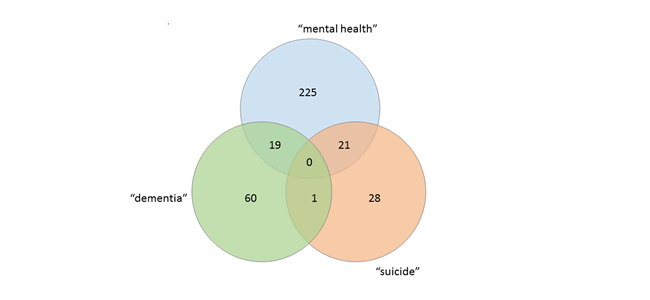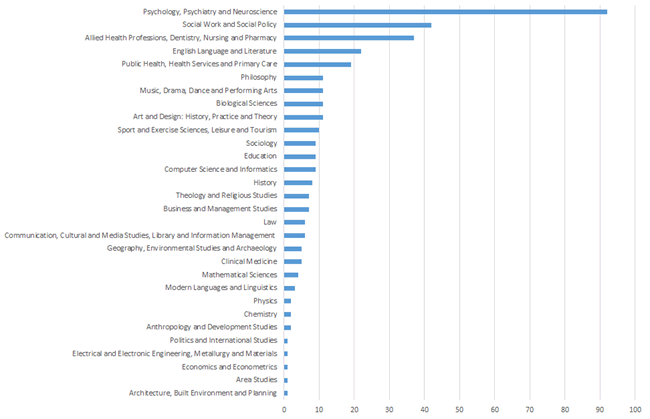This post was originally published on the HEFCE blog on 30 March 2016 (archived copy).
Over recent years discussions about addressing grand challenges have become intimately linked with research. While research undoubtedly has a part to play in addressing challenges, the links between challenges and specific research disciplines are far from straightforward.
Take mental health. This is a major challenge for society, as highlighted by the recent report of the Independent Task Force to the NHS. There is a whole chapter on research and innovation, which makes the case for a rounded research portfolio needed to address the challenge of mental health, followed by a rather specific recommendation for HEFCE, to increase funding to clinical researchers.
This illustrates the challenge. Despite acknowledging the breadth of research needed to address the mental health challenge, the report easily slides into associating the challenge with particular types or disciplines of research.
This is a problem not only because it limits the disciplines that might get involved (or be supported to get involved) in the challenge. It also rapidly limits the ‘solution space’ – are all the solutions to the mental health challenge really going to come from more clinical research alone?
Where to invest
This issue is a generic one for research policy makers. Given a priority to support a particular challenge, in which research disciplines should we invest?
With the systematic collection of impact case studies in REF2014, we now have a data source to help answer this question. We can find case studies that demonstrate benefit in a particular challenge area, and see what types of research led to that benefit.
Doing this analysis for mental health reveals an interesting picture. If you search the impact case study database for the search terms ‘mental health’, ‘dementia’ and ‘suicide’, that identifies a set of 355 case studies, with some overlap between the search terms:

Of course, this isn’t an exhaustive search for cases related to mental health issues; there may be more, but already this set accounts for around 5 per cent of all the case studies submitted to REF2014.
These case studies were submitted to 30 out of the 36 discipline based Units of Assessment (UOAs), and the distribution of the case studies between the UOAs is shown in the chart below.

The diversity is striking. While the subpanel with most case studies in this set is Psychology, Psychiatry and Neuroscience and other health related units feature prominently, there are significant contributions from other disciplines, like Social Work and Social Policy and English Language and Literature.
And there are also lots of other UOAs that demonstrate a linkage to the challenge of mental health. A significant proportion of the total QR funding that we distribute is done so on the basis of performance in disciplines that have at least the potential to contribute to the mental health challenge.
As well as the at the level of broad UOAs, the case studies have also been characterised in terms of the fields of research of the underpinning research declared in the case study. Analysed at this level, a similarly diverse picture emerges.
Of the 150 or so fields of research, 63 are represented in this set of case studies. Health and medical related disciplines are important, but so are disciplines like Cultural Studies, Policy Studies and Applied Economics. A table of the full list of 63 disciplines is available here. As is the case with the impact case studies generally, those relating to mental health are interdisciplinary, with 75 per cent drawing on 2 or 3 different fields of research.
How can investment support research challenges?
The implications of this analysis are profound. We can’t easily ‘map’ research disciplines onto challenges, and there is no simple answer for investment decisions. And equally we must be cautious about allowing specific disciplines to capture challenges as their own.
So how do we make investment decisions to address challenges? It would seem that two approaches are available.
First, we can organise investment around the challenges themselves, carefully constructed so that they are open to whatever disciplines or combinations of disciplines make sense. Second, we could provide funding to support research in general, allowing universities to direct this funding to address challenges, combining disciplines as needed and following serendipity where it arises.
Of course, this is just a description of the dual support system that we already have, and the REF impact case studies provide ample evidence that UK universities are ready and able to rise to the challenge.
